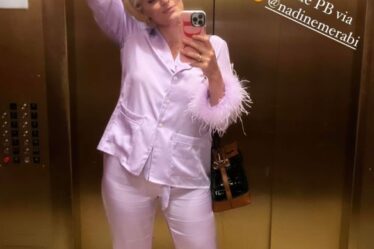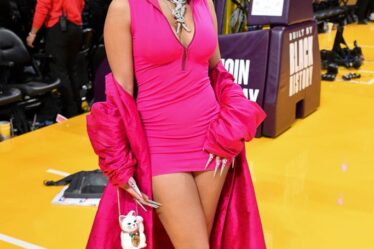
Not all that long ago, the direct-to-consumer revolution looked to be on the outs.
By the end of 2019, many venture funds were sceptical of the growth-now, profits-later start-up mindset. Some early darlings raised money at lower valuations or sold to retailers like Walmart, where they often stagnated. Successful exits were few and far between. Some questioned whether a happy ending was even possible for the mostly unprofitable fashion brands launched over the last decade.
Such talk is less common today. Allbirds and Warby Parker, two pioneers of the DTC playbook, held blockbuster IPOs. Allbirds, which reported $219.3 million in revenue and $25.9 million in net losses in 2020, was valued at more than $4 billion on its first day of trading last month. Warby Parker, which went public in September after reporting $393.7 million in revenue and $56 million in losses in 2020, today has a market capitalisation of over $5 billion.
These dizzying valuations reflect the allure of the central narrative of the DTC era — that these companies represent the future of consumption, and that the best of them will become the retail giants of tomorrow. A lack of profits today — or a clear idea of when and how these start-ups will eventually operate in the black — is of little concern to investors hoping to get in on the ground floor of the next Gap or Nike.
“If you’re going after disrupting the Zaras of the world, profit shouldn’t be the focus,” said Jason Stoffer, partner at Maveron, a venture firm that’s invested in Allbirds and direct-to-consumer underwear brand Parade. “Especially in a market when capital is cheap, why focus on profitability?”
People also have plenty of money to invest. The economy has roared back from the pandemic, while the US Federal Reserve has maintained low interest rates. There is more capital out there to fund the next Amazon than there are candidates for the role.
“On some level, it’s a supply and demand issue,” said Kirsten Green, founder of Forerunner Ventures, an early investor of Glossier, Bonobos and Dollar Shave Club. “There’s a lot of money that’s funding something [growth-oriented] and pointed in the direction of the future — and right now there’s a limited number of those businesses you can invest in.”
Forerunner itself raised $500 million last year for its fifth fund, with which it has invested in shopping app Nate and pet care company Dutch, among others.
But the bear case against fashion start-ups hasn’t gone away. One venture veteran described today’s e-commerce frenzy as a symptom of greater fool theory, or the idea that investors purchase assets they believe are overpriced because they are certain they’ll find someone else willing to pay even more for it down the line. It’s a popular critique of cryptocurrency and the “meme stock” trend, where small investors piled into the stocks of ailing companies like Gamestop and AMC.
“There’s one point of view that we’re in the early innings of the next industrial revolution, and there’s another point of view that we’re in a bubble,” Stoffer said. “You can’t say definitively today which one is true. If you look from the outside, you’d be like, ‘This whole thing is nuts.’ But I can’t come to that conclusion.”
To be sure, there have been reminders that the good times won’t go on forever. Entireworld, a popular DTC loungewear label created by Band of Outsiders designer Scott Sternberg, began shuttering its operations in October, pointing to a failed fundraise that ultimately forced the label to close, despite its glowing reputation. Mattress maker Casper, an early DTC unicorn, exited the public market last month after being acquired by private equity firm Durational Capital Management in a deal that values the company at south of $300 million, about half of its market capitalisation following its IPO two years ago.
Everyone right now is prepared for shit to hit the fan — they just don’t know when it will happen.
“It would be silly for us to think forever, for the rest of our lives, we’ll see economic prosperity. Factually, that has never happened,” said Alex Song, founder of brand incubator Innovation Department and former analyst at the hedge fund Pershing Square Capital Management. “Everyone right now is prepared for shit to hit the fan — they just don’t know when it will happen. None of it makes sense but we have to be in the game, or else we’ll be on the sidelines not making money.”
In the meantime, investors’ seemingly limitless enthusiasm for fashion start-ups gives these companies more time to reshape the industry. As long as DTC brands and online marketplaces are flush with capital, they will put pressure on the entire industry to adapt. At the same time, investors are putting their thumb on the scale; right now, it pays to move fast and take risks, rather than taking the slow path to growth.
Even though companies like Allbirds are not yet profitable, they are set up for success because they tightly control their distribution and pricing, said Matt Hayes, co-founder of the new direct-to-consumer marketplace The Fascination, who also co-founded internet mattress brand Leesa.
“The groundswell around all of these things will pay off,” Hayes said. “At one point, you can stop spending on R&D and the top line will carry on.”
This mindset has put incumbents restrained by a different set of rules — rules that favour high profit margins in order to drive earnings per share and frequent dividends — in a bind. Gap Inc. and Nordstrom, for instance, have seen sales or profits, and their share prices, slip this year.
Others have adapted; Target gives shelf space to trendy DTC brands and has created in-house labels that imitate online rivals’ styles. Saks Fifth Avenue owner Hudson’s Bay Company is preparing an IPO for the online arm of the luxury department store with a projected $6 billion valuation — triple what investors predicted just eight months ago. Macy’s is reportedly mulling an e-commerce spinoff of its own.
For now, at least, investors are betting on the disruptors to prevail.
“If there is enough money on the sidelines, it means there’s enough money to take the risk, which means they can reap the reward,” said Anthony Sperduti, founder of creative agency Mythology, which has worked with the likes of Allbirds and Warby Parker.
Unless the money stops flowing, “the cycle won’t stop,” he added.
Related Articles:
Investors Look Beyond Brands for the Next Great Fashion Start-Up



